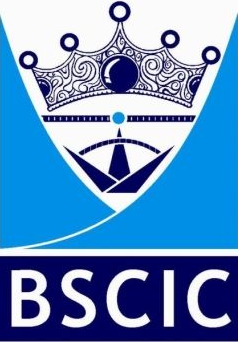
Overview - The ISO 9001:2015 Quality Management System Lead Auditor Course is an online program designed to teach participants the fundamentals of QMS lead auditing and how to apply them in the workplace. Through engaging lessons, interactive activities, real-world examples, and opportunities for practice assessment and feedback, this course covers all topics related to the revision of the international standard ISO 9001. Upon completion of this comprehensive course, learners will be equipped with essential knowledge on conducting audits according to regulatory requirements as well as become certified through obtaining a certificate from CQI I IRCA which is globally accepted.
Objective -
- To provide comprehensive training on the requirements and principles of a quality management system in accordance with ISO 9001:2015 standards.
- To gain an understanding of the expectations for the design, implementation, and registration/certification of a QMS to be audited against these international standards.
- Provide an overview of how to implement an effective internal audit program within their organizations according to the latest standard.
- Gain knowledge on methods used by lead auditors which are required when process audits are needed or external registrations/certifications need to take place.
- Allow participants to develop essential skills needed when conducting first or second-party (internal) audits as well as third-party certification body assessments using exam simulations conducted during exercises throughout the course.
- Explain the eight quality management principles as well as the aim of a quality management system.
- In the context of an audit, explain the ISO 9001 requirements. Describe the objectives, substance, and relationships between ISO 9001, ISO 9000, ISO 9004, and ISO 19011.
- Describe the duties that fall under the purview of lead auditors and auditors.
- Setting up and carrying out an audit in compliance with ISO 19011.
- Write down any genuine, verifiable, and value-adding nonconformities in the audit report.
- Conduct follow-up activities for the audit, such as assessing the success of the owners' corrective actions.
.png)
How would taking this course benefit my Career?
Learn to identify the principles of a Quality Management System according to ISO 9001:2015.
- Understand the elements and implementation requirements for an effective audit program within your organization’s QMS framework.
- Gain hands-on experience in leading, planning, and executing audits with simulations under personalized guidance from experienced professionals.
- Get certified as a Registered Lead Auditor/Certified Lead auditor by examining bodies such as CQI I IRCA approved training providers.
- Become proficient in managing non-conformances through appropriate corrective actions following international standards like ISO 19011 guidelines for best results.
- Leverage upon the ISO 9001 lead auditor online training benefits which include accessing top resources, review modules.
WHO SHOULD ATTEND?
- A Lead Assessor or Third Party Assessor
- Accountable for conducting supplier and subcontractor audits
- Responsible for putting audit programmes and internal audits into effect
- Accountable for putting the ISO 9001 series of requirements into practise
Content of the ISO 9001 Lead Auditor's Course:
- A quick overview of the series 7 Quality Management Principles of the ISO 9000 Standards.
- Process Approach with the PDCA Cycle and ISO 9001 Standard Requirements auditing.
- Documents for the quality management system.
- Requirements for ISO 19011 auditing.
- Auditor Roles and Responsibilities Auditing Planning.
- Reports of non-conformance and checklists.
- Reporting on audits.
- Exercises, case studies, accreditation, certification, and auditor registration are all included in the final team meeting.
- The course evaluation.
*Which topics are covered in the ISO 9001:2015 QMS lead auditor course?
The training encourages active participation and will help participants advance their skills. The actual application of assessment information and skills is prioritized. Delegates can apply their skills and knowledge to all phases of the evaluation process by using realistic case studies. This course was created with input and feedback from numerous trainers, clients, and training consultants from around the world.
Course Duration:
40 Hours + 2 Hrs 15 mins Examination (Non English speaking Learner)
Course Duration & Structure:
5 Days Course, typically starts at 9:30 A.M. and ends by 6:30 P.M (IST). Presentations, Examples, Exercises requiring group work, Brainstorming, Readings, and Sharing of Practical Experiences are all included in the course. A 45-minute lunch break each day
